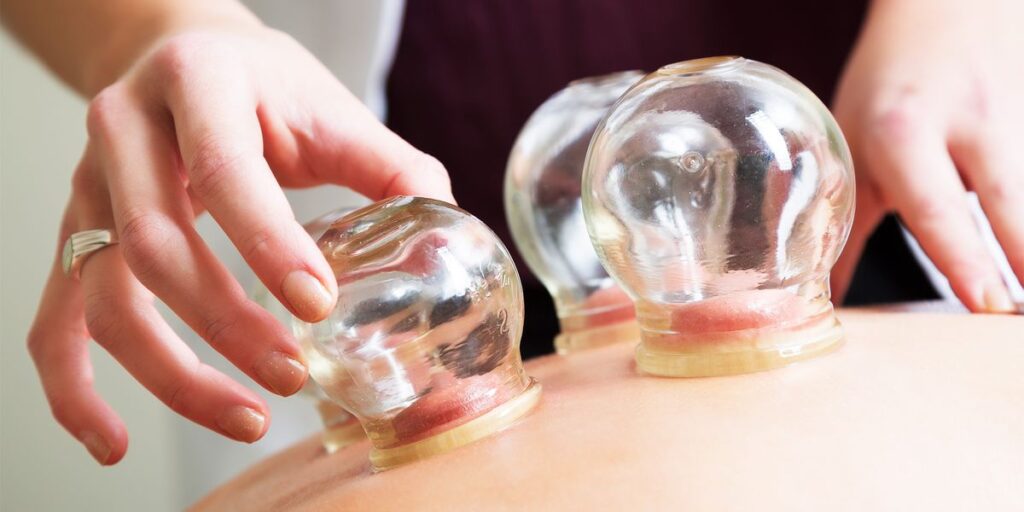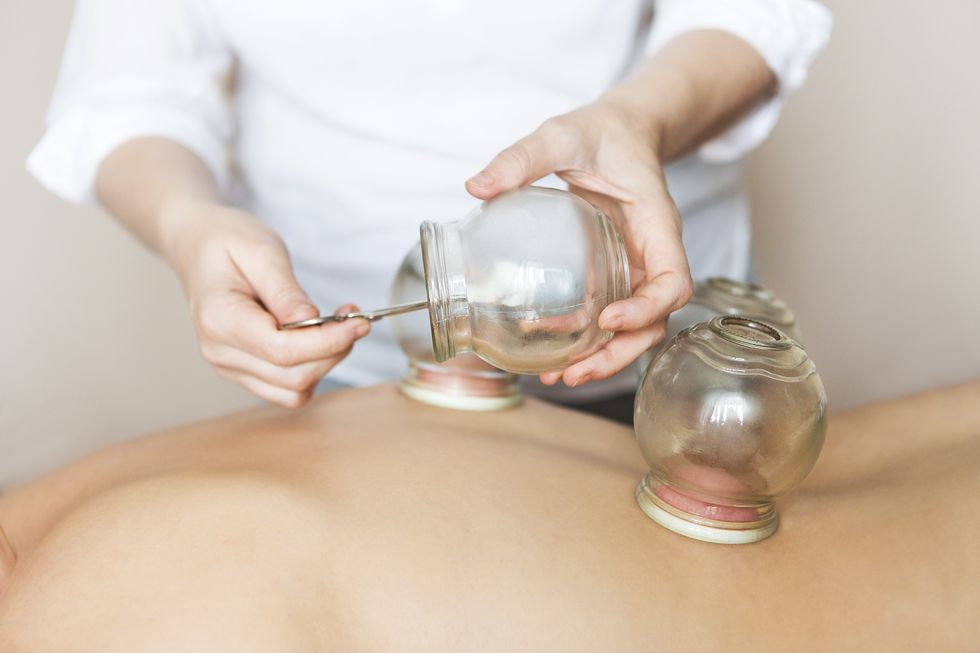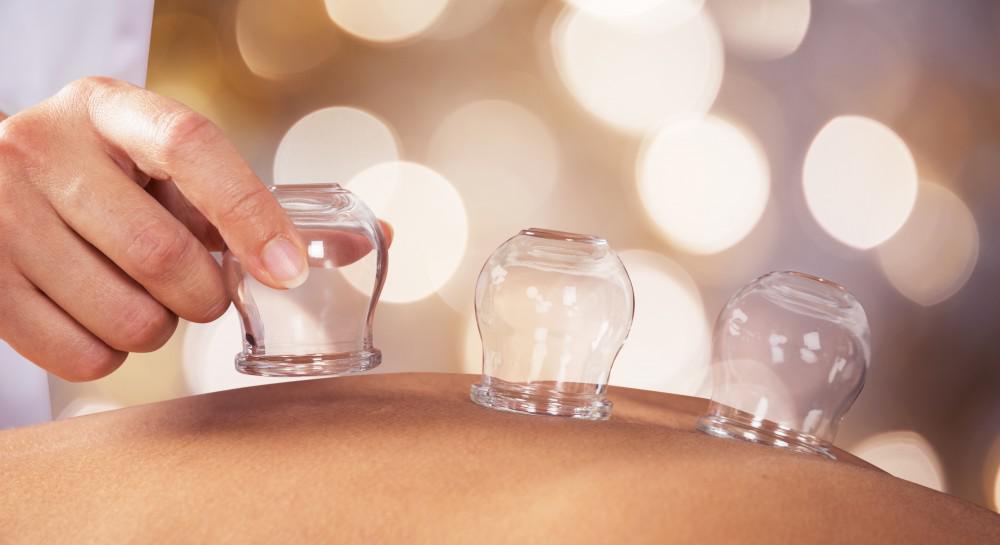
the hajaamah (cupping- cautering) of prophet
The author mentioned six ahaadith in this chapter, wherein the use of cupping -cauterizing on different occasions have been mentioned.
The object is to show that Sayyidina Rasulullah Sallallahu ‘Alayhi Wasallam used medicines for body treatments, and that this is not against tawakkul (complete reliance of Allah), because who can have more trust and reliance in Allah than Sayyidina Rasulullah Sallallahu ‘Alayhi Wasallam.
Considering all this, we find in many ahaadith that Sayyidina Rasulullah Sallallahu ‘Alayhi Wasallam used the treatment of cupping, and the fact is, that it is not against reliance on Allah. Shah Waliyullah Dehlawi has in one of his books, compiled many of his mubash-sha-raat (glad tidings), mukaa-sha-faat (divine inspirations) and questions put forward to Sayyidina Rasulullah Sallallahu ‘Alayhi Wasallam in his dreams that:
‘I once asked Sayyidina Rasulullah Sallallahu ‘Alayhi Wasallam a spiritual question that, what is better, to adopt material means, or to discard it’.
Upon this I received a spiritual blessing from Rasulullah Sallalhu ‘Alayhi Wasallam.
As a result I began feeling apathetic towards material means, children and all other things.
After that I was inspired, the effect of which was that my nature would turn towards material means, and the soul towards the acceptance and entrusting oneself to Allah.
The fact is that this is the true tawwakul (complete trust in Allah, passive living), one feels that material things in themselves have no effect at all, and their effects are only from Allah.
Without the wish of Allah, nothing can be done.
‘No one has the strength to change the will of Allah.
Bile increases by the use of vinegar, and dryness results by the using of almond oil’.
In another book of Shah Waliyullah Dehlawi it is stated, the question regarding causes is
included among the three counsels left by Sayyidina Rasulullah Sallallahu ‘Aiayhi Wasallam to him.
Sayyidina Rasulullah Sallallahu ‘Alayhi Wasallam made it compulsory, thereby making it
go against Shah Saahib’s natural inclinations.
The second detail is regarding the Shaykhayn and ‘Ali Radiyallahu ‘Anhum.
The third is the question of discarding taqleed. Shah Waliyullah was of the opinion of discarding taqleed, but he was compelled to follow any one Imaam.
There is no room for details here. Shah Waliyullah has described them in his books Fadl Mubeen and Fuyudul Haramayn.
hadith 1

Anas Radiyallahu’Anhu was asked regarding the payment to a hajjaam (cupper).
(Is it permissible or not?) Anas Radiyallahu ‘Anhu replied:
“Rasulullah Sallallahu ‘Alayhi Wasallam took the treatment of cupping which was administered by Abu Taybah Radiyallahu ‘Anhu, he was given two saa’ food (in a narration it is mentioned that dates were given), and Sayyidina Rasulullah Sallallahu’Alayhi Wasallam interceded on his behalf to his master that the stipulated amount he was responsible for be made less.
He also said this, that cupping is the best of medicine”.
hadith 2
‘Ali Radiyallahu ‘Anhu reports: “Rasulullah Sallallahu ‘Alayhi Wasallam once took the treatment of cupping and asked me to pay its fees. I paid the hajjaam (cupper) his fees”.
Commentary
Two things are also apparent from this hadith. Using the treatment of cupping and paying its fees
hadith 3
Ibn ‘Abbaas Radiyallahu ‘Anhu said that Rasulullah Sallallahu ‘Alayhi Wasallam took the
treatment of cupping on both sides of his neck and between his shoulders, and paid the cupper his fees.
If it had been haraam, he wold not have paid it.
hadith 4

inquired from him what tax or duty did he have to pay daily? He replied, three saa’.
Rasulullah Sallallahu ‘Alayhi Wasallam had it reduced to two saa’, and gave him his remuneration”.
Commentary
Apparently this is the same hadith about Abu Taybah Radiyallahu ‘Anhu mentioned in the first hadith of this chapter.
In the beginning he had to pay his master three saa’, then Sayyidina Rasulullah Sallallahu ‘Alayhi Wasallam had it reduced to two saa’.
hadith 5
Anas bin Maalik Radiyallahu ‘Anhu said: “Rasulullah Sallallahu ‘Alayhi Wasallam used the
treatment of cupping on both sides of his mubaarak neck and between both shoulders, and
generally took this treatment on the seventeenth, nineteenth or the twenty first of the (lunar) month”.
Commentary
In some ahaadith, the benefit of these dates are also mentioned. The unaani hakims also agree with this. It is reported that Ibn Sina said it is not beneficial to take treatment of cupping in the beginning and end of the month, this treatment should be taken in the middle of the (lunar) month.
From this hadith we find that Sayyidina Rasulullah Sallallahu ‘Alayhi Wasallam took this treatment many times, and on different days, and from the ahaadith that follow, we also find that it was taken at different places.
The Jews gave Sayyidina Rasulullah Sallallahu ‘Alayhi Wasallam strong poison in his food.
They intended to kill him, so that the question of their opposition may be eliminated.
Although Sayyidina Rasulullah Sallallahu’Alayhi Wasallam did not eat the whole portion of the poisoned meat, but the effect of the portion eaten was, that it used to trouble him at different times, especially in the summer the effects used to occur frequently.
The place where it used to pain the treatment of cupping was applied.
As poison mixes into the blood stream, its effects and pains are felt on different parts of the body.
hadith 6
Anas bin Maalik Radiyallahu ‘Anhu reports: “Sayyidina Rasulullah Sallallahu ‘Alayhi Wasallam
took treatment of cupping on the back of his leg at Milal (a place about seventeen miles-27 kmfrom Madinah Munawwarah in the direction of Makkah) while he was in the state of ihraam”.
for prophets stories visit https://sunofislam.com/prophetsofgod/
for scientific miracles articles visit www.sunofislam.com
